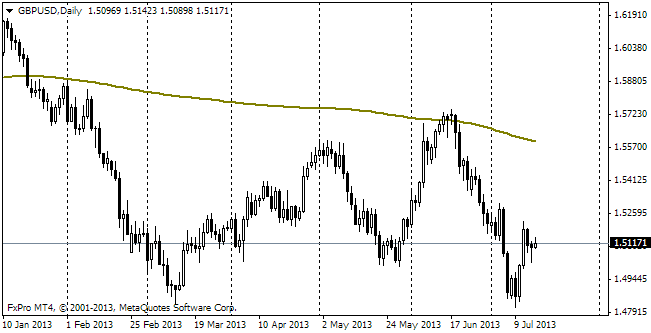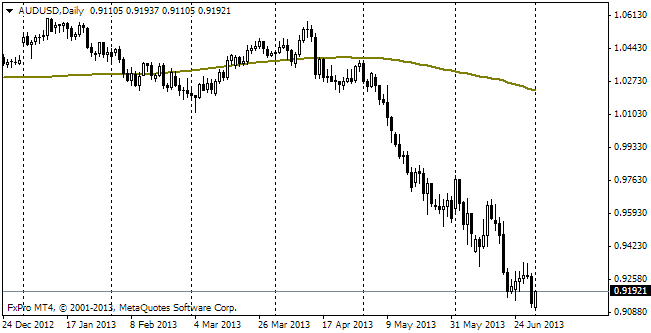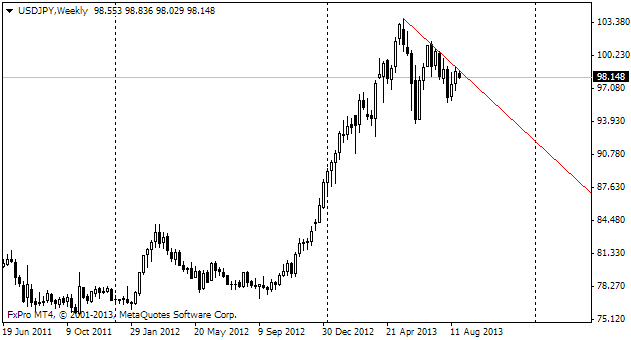EUR/usd
ECB is ready to take measures not to let the period of extremely low inflation continue. We keep getting messages regarding this. Liikanen, mentioned yesterday, again spoke about possible introduction of negative interest rates to punish the banks, which park money at ECB and don't issue loans to business and households. draghi also didn't specify anything yesterday, promising to ‘do whatever it takes to ensure price stability'. It's important that Draghi and even Germany's Weidmann mentioned quantity easing and negative interest rates among the considered measures. The market has already heard something like that before and it's been long observed that the positive economic performance obviously diminishes ECB's vigour. New measures will be discussed only in case of economic decline and sharp worsening in the financial markets. On default the CB is ready for long years of closing the output gap, formed during the financial and further debt crises. By the way, we are getting good news from Cyprus, whose credit rating has been raised. A few weeks ago Ireland entered the market of long-term borrowing after several years of forced absence. All this doesn't allow speaking about a high probability of policy easing in ECB. Most likely, the euro may remain under pressure on strong news from the USA, which will increase the gap between the passive-mild sentiment of ECB and passive-tough one of the Fed. The comments given by ECB's officials yesterday as well as the decline of Ifo managed to put short-term pressure on the euro. During the NY trading session the euro/dollar at some point fell to 1.3748, but found support at that level and closed the day with a slight decrease by 13 pips at 1.3825.
GBP/USD
Yesterday the sterling felt a bit more confident than the euro, first of all, because we didn't hear about readiness to ease the policy from the BOE's officials. Just the opposite, observers are trying to forecast when the first increase of the rate will take place and if it will be sooner than in the USA. In this regard yesterday's inflation data proved to be favourable for bulls. Though the general price index coincided with the expected rate, slowing down to 1.7% y/y. The core inflation decreased to 2.7% against the expected decline to 2.6% and the inflation of housing prices rose to the annual rate of 6.8% against the forecasted 5.7%. Such data helped the sterling grow by about 30 pips by the end of the day.

AUD/USD
The aussie manages to show quite a decent performance, despite the alarming signs of economic slowdown in China. The markets of these two economies are getting less correlated. The Australian dollar looks underestimated, but in our opinion it is too early to buy it. The dollar's rally may easily ruin all the attempts to purchase audusd above 0.9000.

USD/JPY
One of the BOJ's counsellors pointed out that the Bank may introduce additional incentives at the meeting in May. In April it will be a year since the beginning of the large-scale quantitative and qualitative easing. The Bank managed to increase inflation expectations and force prices in shops to grow. However, there are still problems with trade deficit and the economy doesn't always impress with strong rates. Trading at 102.30, the yen is just by 8% cheaper against the dollar than a year ago and by 17% than two years ago. So, the CB has much space to put pressure on the rate without the risk to seriously damage the economy.
